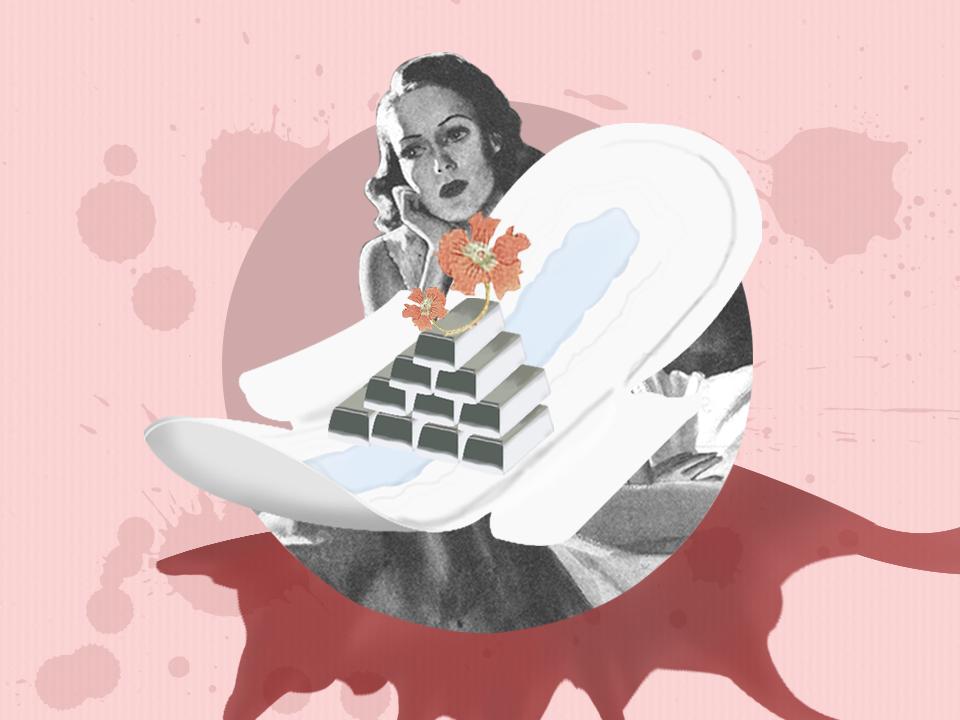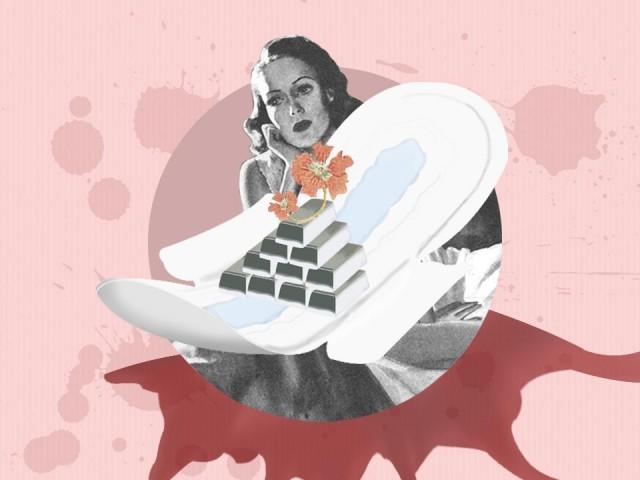Painful 'puson', period poop, and weirdly colored discharge: Why is my 'mens' so metal?

[It's International Women's Month. Let's talk about issues and concerns that women face. This week, it's periods.]
The period’s been called many things, but it’s never been called fun. From hard cravings to intense puson pains, to gross-colored discharge — TMI, we know and with all the bleeding, so metal.
But it's Women's Month. So to celebrate, we're forgetting that whole TMI hullabaloo and freely speak about our periods and how and why they get so hardcore, several OB-GYNs in tow.
What's up with horrible dysmennorhea every month? From my puson, it reaches all the way to my back rendering movement impossible.
As if periods weren’t icky enough, dysmennorhea makes it worse. Dr. Kim Mantolino, OB-GYN at Unihealth Paranaque Hospital and Medical Center, explains, “Dysmenorrhea or menstrual cramps is basically the whole uterus contracting, blood vessels are compressed, therefore decreasing the oxygen supply, which causes pain. It can be felt from the lower abdomen or “puson”, and can sometimes extend to the back."
Adds Dr. Mantolino, severe pain can also be due to other underlying conditions like adenomyosis, in which "the inner lining of the uterus breaks through the muscle wall of the uterus" or endometriosis, "a disorder in which tissue that normally lines the inside of your uterus grows outside your uterus".
What is up with deep dark brown spotting before my period? Should I be worried?

Need a wellness break? Sign up for The Boost!
Stay up-to-date with the latest health and wellness reads.
Please enter a valid email address
Your email is safe with us
As long as the discharge is non-foul smelling and your vagina is not itchy there's nothing to worry about.
Dr. Jocelyn Sy, OB-GYN at the Chinese General Hospital says "if it’s yellow or green, or chunky in consistency, or have a foul odor, that indicates an infection."
When it comes to spotting, you need not worry if it comes out brown, or even black—it’s just dried up or “old” blood coming out. Dr. Sy adds, “For spotting, it’s normal for as long as it lasts for three days or less before your actual period. If it goes on for a week or more and it’s not your period, or if there’s a pattern of bleeding or spotting between period, consult with your OB-GYN.”
By the way, don't start counting during spotting before your period. Your menstrual cycle begins on the first day of the heavy flow, not the days you were spotting.

Help me! What is up with period poop?
It’s not just your imagination — you really do go to the bathroom more often before or during your period.
Dr. Lariza Luna, OB-GYN at the Medical City in Ortigas, says, “The increased production of prostaglandin (lipid compounds that are like hormones) as we approach our menstrual period causes our uterus to contract, irritates the bowel, thus resulting to diarrhea during our period.”
I’ve been hearing a lot about PCOS and how it affects your period. Any symptoms to look out for? Should I get checked for it, too?
The cause of PCOS, or Polycystic Ovary Syndrome, is still unknown, but it’s thought to be related to abnormal hormonal levels in one’s body. It seems difficult to figure it out, and Dr. Mantolino says that it’s the most common hormone abnormality affecting women in the reproductive age group.
She adds, “In PCOS, ovulation is suppressed due to hormonal imbalance. Without ovulation, menstruation is irregular and can lead to infertility problems.”
Dr. Sy says to come in for a checkup if you’re experiencing the following: abnormal menstrual cycles, increased androgen (sex hormone) levels, excess hair growth, acne, and obesity.
If you do get diagnosed with PCOS, don’t worry — you don’t need to go under the knife. Dr. Sy says, “Treatment options may consist of lifestyle changes, oral contraceptives, insulin sensitizing agents, and anti-androgens.”
I just hit 40 and my period’s going irregular. Could it mean that I’m going into menopause?
There are a lot of reasons for your irregular period, but 40 is quite too early to go on the menopause train. Dr. Mantolino says that it might be Perimenopause. “Perimenopause happens to all women. It’s simply the transition period prior the menopause stage wherein women experience a number of symptoms related to decreasing hormone (estrogen) levels. The age at which it occurs would vary from person to person and can be seen as early as 40 years old.”
Dr. Jennifer Co, OB-GYN at the FEU-NRMF Medical Center, Jose R. Reyes Memorial Medical Center, and Fe del Mundo Medical Center, says that perimenopause can last anywhere from one to 10 years. “The perimenopause period can be extremely disruptive both physically and emotionally. Hormonal fluctuations, like spiking and falling levels of estrogen and progesterone, can create a wide range of changes like migraines, weight gain, sore breast, hot flashes, night sweats, sleep disturbances, heavy menstrual bleeding, memory changes, urinary changes, vaginal changes, and shifts in sexual desire and satisfaction.”
I'm in my mid-30s and my period is getting hellacious by the month. I'm getting really scared of menopause. Just how uncomfortable is it, really?
Menopause is hardly comfortable for any woman, but Dr. Luna says that there are things to help you thru it. “Having a healthy, balanced diet and regular exercise can help. Hormonal replacement therapy is usually the treatment of choice.”
Dr. Sy states that weight control must be done, and smoking must stop. “Carbon monoxide has been shown to increase the rate of breakdown of estrogen in the bones, that can lead to worsening hot flushes.”
Dr. Co suggests helping yourself first with the following ways, “Meditation, yoga, relaxation, regular exercise, healthful food, enough sleep, and support from family and friends.” — LA, GMA News

Need a wellness break? Sign up for The Boost!
Stay up-to-date with the latest health and wellness reads.
Please enter a valid email address
Your email is safe with us






